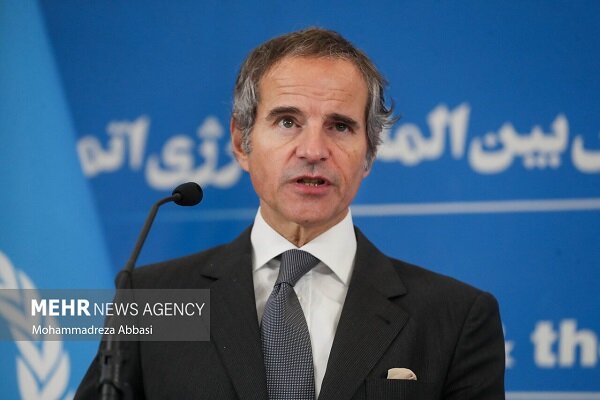We did not find evidence of weapons production/recent tensions did not affect the agency’s activities

| Emphasizing that there is no evidence of nuclear weapons in Iran, Grossi said that the recent tensions have not disrupted the process of the organization's monitoring of Iran's nuclear program. |
According to Mehr News Agency, The Director General of the International Nuclear Agency, who has traveled to New York, answered the journalists’ questions about the latest status of Iran’s peaceful nuclear program.
Admitting that the recent military tensions in the region did not disrupt the IAEA’s monitoring of Iran’s nuclear power plants, Rafael Grossi added: “There is no proof of Iran’s intention to build nuclear weapons.”
Grossi explained that our inspectors in Iran were informed yesterday that all the nuclear facilities we inspect every day are closed for security reasons.
He noted that these centers were opened today to continue inspections.
Grossi also added that our inspectors are in Iran and will continue their work.
In response to a question about new developments in Iran’s nuclear program, the Director General of the IAEA repeated some political claims and explained that Iran has enriched uranium reserves at a very high level. It is high.
He expressed hope that he will go to Tehran within the next few weeks.
The head of the International Atomic Energy Agency clarified: Despite some political claims about Iran having high reserves of enriched uranium, this does not mean that Iran has nuclear weapons.
Grossi emphasized once again: We have no evidence or information that shows that Iran intends to build nuclear weapons.
Grossi also expressed satisfaction with Iran’s cooperation with nuclear inspectors.
The International Atomic Energy Agency has repeatedly emphasized that cooperation between Iran and the agency is “sustainable” and is based on the principles of the Nuclear Non-Proliferation Treaty (NPT) and safeguards agreements.
It should be said that Iran took steps under the supervision of the Agency to reduce its obligations in order to balance the implementation of this agreement, 2 years after the unilateral withdrawal of the United States from the JCPOA and the procrastination of the European parties in fulfilling their obligations in this agreement.
>
The Islamic Republic of Iran has always emphasized that the measures taken are reversible and whenever the other parties fully fulfill their obligations, Iran will reciprocate.


